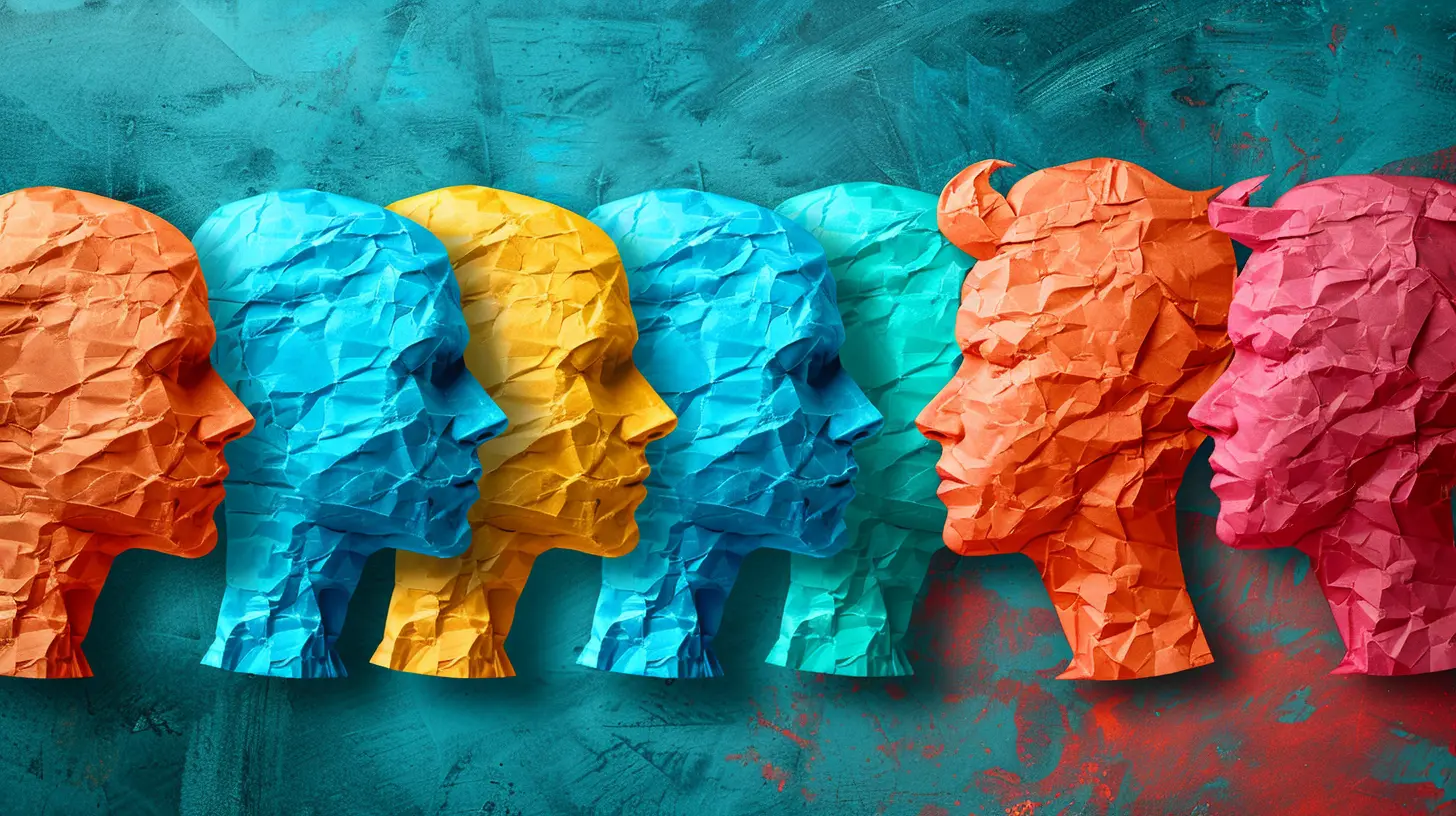How Social Support Systems Improve Mental Health
18 August 2025
Have you ever felt like the weight of the world is just too much to carry alone?
You're not alone in feeling that way—and the good news is, you don’t have to be. We might not all have a manual for dealing with stress, anxiety, or depression, but one tool that consistently makes a huge difference is social support.
Yep, we're talking about relationships—your friends, family, coworkers, online communities, or even that neighbor who always waves hello. Social support systems are powerful, and they do way more than just provide a shoulder to cry on. In fact, they can literally help you feel happier, healthier, and more mentally resilient.
In this article, we’ll dive deep (in a friendly way) into exactly how social support systems improve mental health, why they're so important, and how you can build your own support network even if you're starting from scratch.
What Are Social Support Systems Anyway?
Before we get too far, let's break it down. Social support systems are the web of people in your life who offer emotional, informational, or practical help. These aren’t just the folks you party with on weekends—they’re the ones who:- Listen when you're venting after a hard day
- Offer advice during tough decisions
- Help you run errands when you're sick
- Cheer you on when you're chasing your dreams
Think of social support as your personal emotional safety net. People who have strong support systems tend to feel less alone, manage stress better, and bounce back quicker from crises. It's kind of like having your own mental health insurance—except the premium is just, you know, being present for each other.
The Science Behind Social Support and Mental Health
So how exactly do social connections help our minds and moods? Let's unpack the mental magic happening behind the scenes.1. Reduces Stress Big Time
When life gets stormy, having someone to talk to can make the chaos feel a little less wild. Talking through your feelings helps your brain process emotions instead of bottling them up. And guess what? That lowers your stress hormones like cortisol.Ever notice how just texting a close friend about a rough day makes you feel lighter? That’s not your imagination—it’s your brain calming down.
2. Lowers Risk of Depression and Anxiety
Research has shown that people with strong social support are less likely to develop depression and anxiety. Why? Because connection combats isolation. When you feel like someone gets you, it’s easier to challenge those negative thoughts whispering in your mind.And even if you do experience anxiety or depression, a solid support system can help you get through it faster and with better outcomes. It’s like having cheerleaders reminding you that you’re not alone in the fight.
3. Boosts Self-Esteem and Confidence
Remember that time a friend hyped you up before a big presentation or reassured you that you weren’t a total failure after a breakup? That’s social support in action.Supportive people reaffirm your strengths, help you see your worth, and encourage you to keep going when your self-belief falters. Over time, this helps build real confidence. It's like planting seeds of self-esteem that grow stronger with each positive interaction.
4. Encourages Healthy Behavior
Let’s be honest: it’s easier to skip the gym, eat junk food, or binge-watch TV when you’re isolated. But a supportive friend might invite you for a walk, a family member could remind you to take your meds, or a workout buddy can keep you accountable.Social support gently nudges you toward healthier habits—and that leads to better physical and mental health overall.
Types of Social Support That Really Matter
Social support isn’t one-size-fits-all. Different types of support meet different emotional and mental needs. Here’s a quick breakdown:✅ Emotional Support
This is your classic "being there for someone" type. Listening, validating feelings, offering empathy—it’s all about emotional connection.Who provides it? Think close friends, partners, or even therapists.
✅ Instrumental Support
This is more practical help. It’s when your roommate makes you soup when you're sick or your sibling helps with car repairs. It eases your burden by taking action.✅ Informational Support
Got a problem? Informational support offers advice or guidance. It's someone sharing resources when you're overwhelmed or offering tips when you don’t know what to do next. That wisdom can be a game-changer.✅ Companionship Support
Sometimes, you just need someone to hang out with. Companionship support fights off loneliness and provides comfort simply through presence—whether it's watching a movie, grabbing coffee, or even chatting online.
How Lack of Social Support Can Harm Your Mental Health
On the flip side, let’s talk about what not having support can do.Chronic loneliness and isolation don’t just make you feel sad—they affect your brain and body. Studies have linked social isolation to increased risks of depression, anxiety, poor sleep, and even cognitive decline.
It’s like being marooned on an emotional island. You start to second-guess your worth, dwell on negative thoughts, and lose motivation. Worse, you might not even realize it’s happening until your mental health takes a noticeable dip.
That’s why social support isn't a luxury—it's a major necessity.
Building Your Own Support System (Even If You're Starting from Zero)
Okay, here's a common roadblock: What if you don’t really have a support system right now?First, take a deep breath. The good news is, support systems can be built—and no, you don’t need an army of best friends. Quality absolutely matters more than quantity here.
Here are some ways to start building (or rebuilding) your network:
1. Reconnect with Old Friends
Sometimes the best connections are ones we've simply lost touch with. Reach out with a simple message like, “Hey, I was just thinking about you. Want to catch up sometime?”Most people appreciate the gesture—and you might be surprised how easily the bond rekindles.
2. Lean into Communities
Join hobby groups, clubs, or online communities that align with your interests. Whether it's a book club, a support group for anxiety, or yoga classes, shared interests make it easier to connect authentically.3. Be Open and Vulnerable
Support is a two-way street. If you want real connection, you’ve got to be willing to open up—even if just a little. Start small. Share something honest about your day. Vulnerability invites deeper conversations.4. Offer Support to Others
Sometimes giving support helps you receive it. Check in on people. Ask how they’re doing. Listen without judgement. The act of supporting someone else can strengthen your bond—and they’ll likely return the favor when you need it.5. Seek Professional Help
Therapists and counselors are part of your support system, too. If you’re struggling and don’t know where to start, talking to a mental health professional can help you clarify your needs and improve your relationships.Social Support at Work: Why It’s Crucial on the Job
We spend a chunk of our lives at work, so social dynamics there matter—a lot more than we often realize.A good support system at work can:
- Improve job satisfaction
- Lower workplace stress
- Reduce burnout
- Boost overall productivity
And on the flip side, toxic or isolating work environments can seriously mess with your mental health. That’s why cultivating supportive connections with coworkers—or at the very least, setting boundaries with toxic ones—is a big part of protecting your emotional well-being.
So don't underestimate the power of “watercooler” chats or team check-ins. They’re not just small talk—they're mental and emotional lifelines.
Helping Someone in Your Life Who Needs Support
While we’re on the topic, you might be wondering: how can you be a better support system for someone else?Start with three simple things:
1. Listen, don’t fix. Sometimes we jump straight into “solutions mode,” but people often just want to be heard. Listening is healing.
2. Validate their feelings. Say things like, “That sounds really tough,” or “It makes sense you’d feel that way.”
3. Check in regularly. Even a quick “thinking of you” message can mean the world.
Being there doesn’t take much—it just takes intention.
Final Thoughts: We’re Wired for Connection
At the end of the day, we humans are social creatures. Our brains are wired for connection. Social support systems aren’t just nice to have—they’re almost as essential as food, water, and sleep when it comes to mental health.Whether it’s a lifelong friend, a mentor, a coworker who always has your back, or a support group that gets what you’re going through—those relationships are your armor and your anchor.
So, if you've been feeling a little isolated lately, maybe this is your sign. Reach out. Check in. Ask for help. Join a group. Connect.
Because the truth is, we all need someone. And someone out there needs you too.
all images in this post were generated using AI tools
Category:
Social PsychologyAuthor:

Jenna Richardson
Discussion
rate this article
1 comments
Josephine Evans
Sure, because who needs therapy when you have friends to remind you how messed up you are?
September 8, 2025 at 2:28 AM

Jenna Richardson
While friends can provide support, therapy offers professional guidance and tools for deeper healing. Both can be valuable in different ways.


